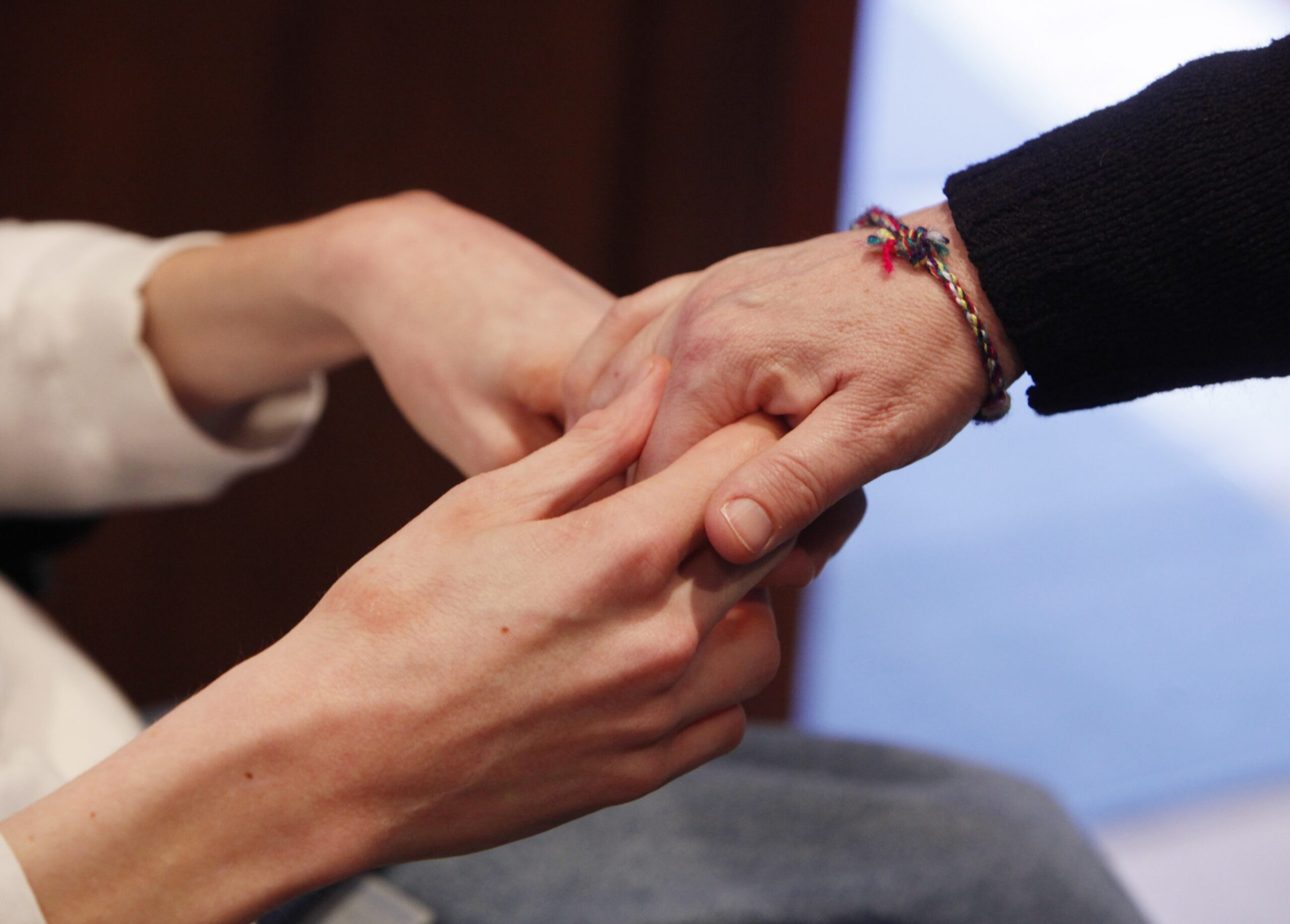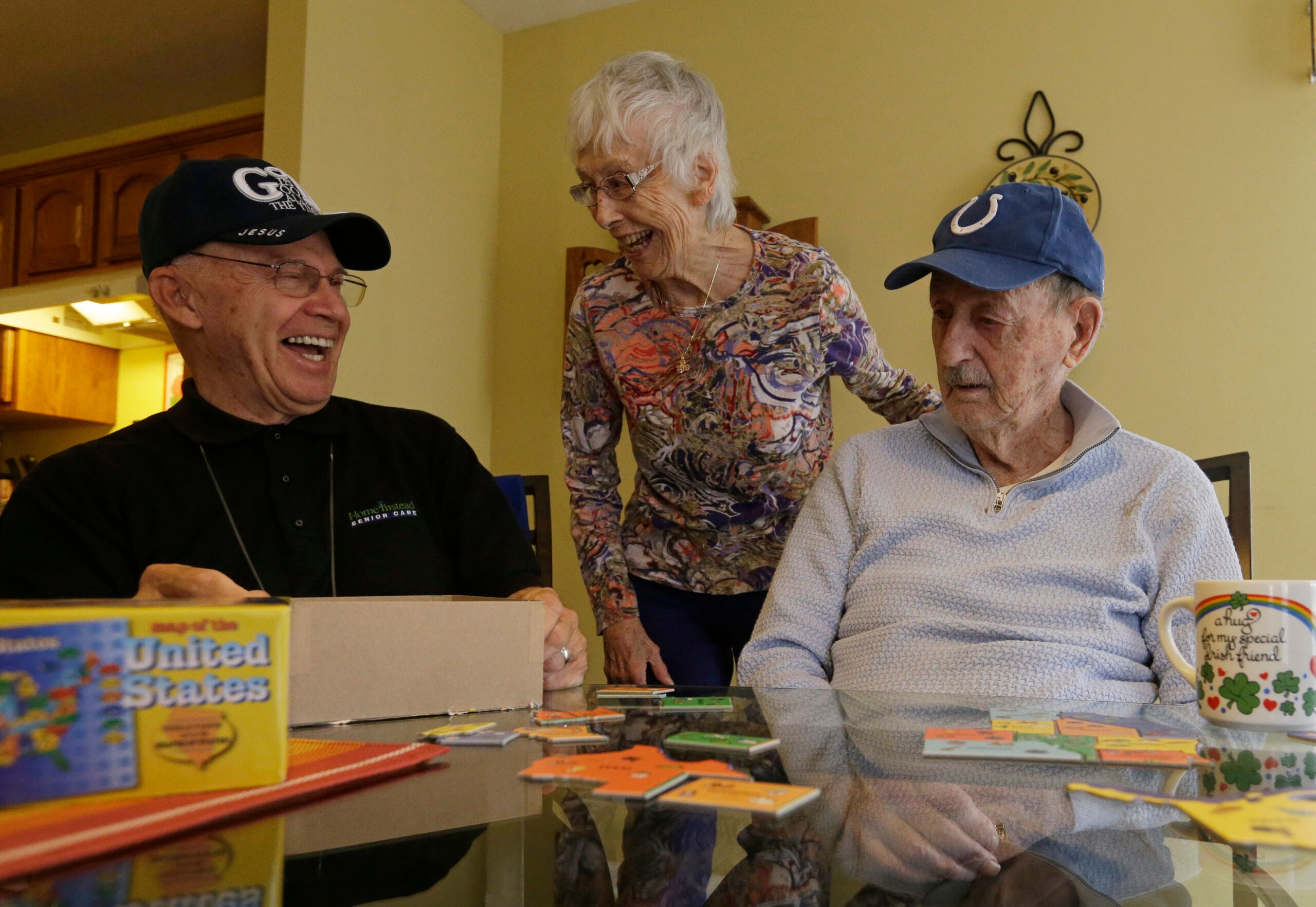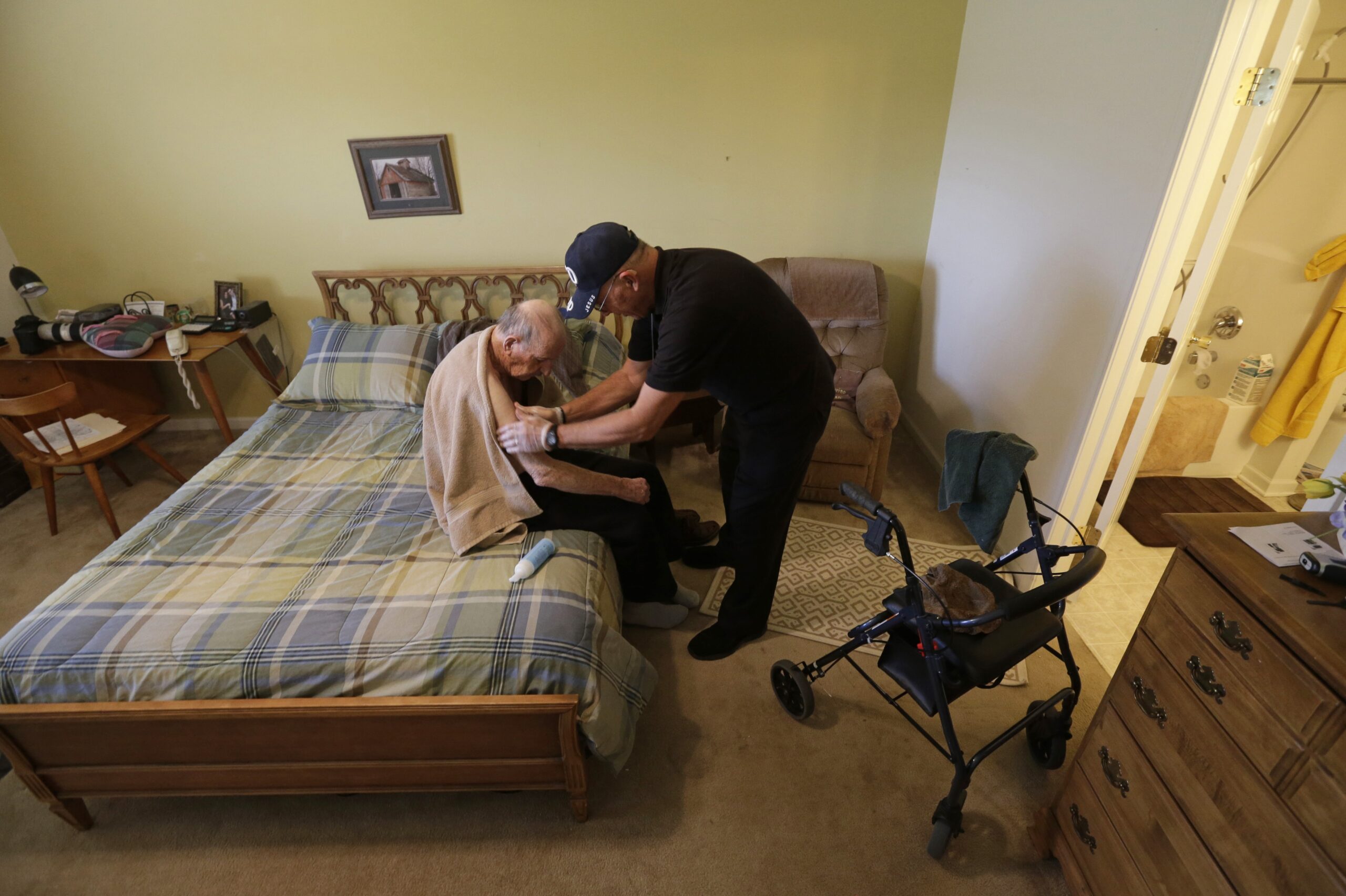A state budget increase of about 36 percent for respite care will go toward expanding an existing online registry of providers and caregivers, and expanding training to meet a workforce need, a respite care advocate said.
In Gov. Tony Evers’ recent budget, $350,000 per year is earmarked for respite care — an increase of $125,000 compared to previous budgets that set aside $225,000 for the service, said Lisa Schneider, executive director of Respite Care Association of Wisconsin in Appleton. This is the first time an increase has been awarded in 20 years.
Respite isn’t a word many people are familiar with, she added. But once they understand that it refers to a break from providing for loved ones, “it’s an incredible opening,” Schneider said.
Stay informed on the latest news
Sign up for WPR’s email newsletter.
Respite care provides a short break for caregivers — whether that’s to go shopping, give them some free leisure time or allow them to sleep through a full night. Such breaks are difficult for caregivers who are assisting their loved ones 24/7. Home health agencies, camps, hospitals and others offer these types of services that are paid for through the Medicaid system.
Schneider said one of the ways her organization is hoping to use these new funds is by expanding on existing online registry that currently lists trained respite care workers. Schneider said the hope is to include respite care providers and agencies so that caregivers in need of respite, respite workers looking for employment and agencies looking for workers have an easier way to connect with one another.
“It’s going to hopefully be a matching system,” she said.
Other goals are to expand training opportunities for respite workers, as well as recruiting opportunities by visiting parts of the state and teaching about what respite care is and what its impacts are. The Respite Care Association also offers online training for free and is partnering with organizations such as the University of Wisconsin-Oshkosh and UW-Madison School of Nursing.
According to Wisconsin’s Family Caregiver Support Programs, signs that a care provider is overworked are health problems such as chronic pain, fatigue and weight change; emotional struggles such as irritability or anxiety; sleep problems and loss of interest in things you used to enjoy.
More than 50 percent of caregivers cited in a 2015 AARP Public Policy Institute’s report said they were overwhelmed by the amount of care their loved ones need. This most recent data, from 2013, said Wisconsin caregivers provided $7 billion in unpaid care working 538 million hours that year.
It’s estimated that by 2030, Wisconsin’s population of those aged 65 and older will double and with it the need for caregivers.
“We’re hoping that people will take respite before there’s any true need for it,” Schneider said. “While we do help folks that are in crisis situations, the whole idea is to really provide respite opportunities at regular intervals so that they don’t get to the point of burnout.”
Wisconsin Public Radio, © Copyright 2024, Board of Regents of the University of Wisconsin System and Wisconsin Educational Communications Board.




